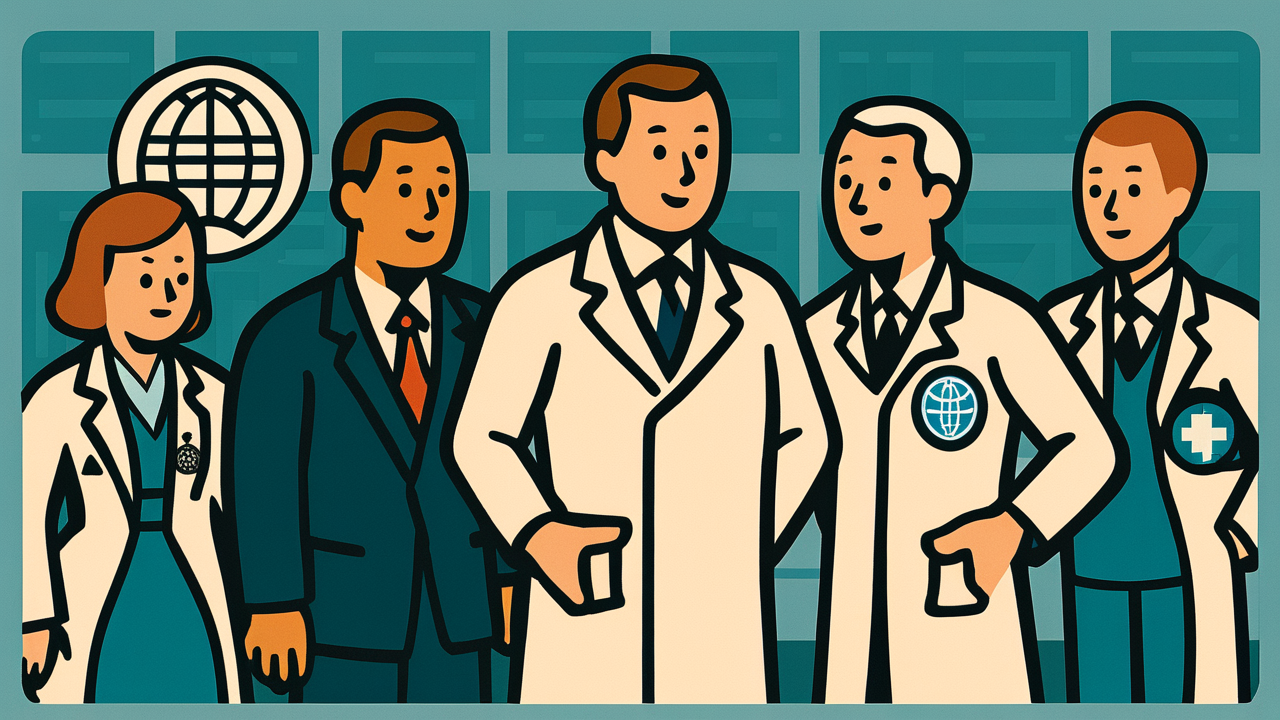[Disclaimer] This article is reconstructed based on information from external sources. Please verify the original source before referring to this content.
News Summary
The following content was published online. A translated summary is presented below. See the source for details.
The United States officially rejected new amendments to the World Health Organization’s International Health Regulations on July 18, 2025. Secretary of State Marco Rubio and Health Secretary Robert F. Kennedy Jr. announced this decision, stating the amendments would give WHO too much power over American health policies. The rejected changes, adopted by the World Health Assembly in 2024, would have expanded WHO’s authority during health emergencies, required countries to adopt digital health documents, and given WHO more control over pandemic declarations. US officials argued these amendments threaten national sovereignty and could allow international bureaucrats to influence American domestic health decisions without adequate public input.
Source: U.S. Department of State
Our Commentary
Background and Context

To understand this news, let’s start with the basics. The World Health Organization (WHO) is like the United Nations for health – a global organization where countries work together on health issues. Think of it as a giant group project where 194 countries try to coordinate responses to diseases and health emergencies.
The International Health Regulations (IHR) are rules that countries agree to follow during health emergencies like pandemics. They’re like the rulebook for how countries should respond when diseases spread across borders. These rules were created in 2005 and updated several times, most recently in response to lessons learned from COVID-19.
The controversy began when WHO members proposed new amendments in 2024 that would give the organization more power to coordinate global health responses. Some countries, including the US, worried these changes went too far.
Expert Analysis
The US rejection highlights a fundamental tension in global health: cooperation versus sovereignty. Here’s what the main concerns were:
• Expanded WHO authority: The amendments would let WHO declare health emergencies more easily and direct countries’ responses
• Digital health documents: Countries would be required to adopt digital health certificates (like vaccine passports)
• Information control: Concerns that WHO could influence what health information gets shared publicly
• China’s influence: US officials worry about political influence on WHO decisions, especially after controversies during COVID-19
The US argues that health decisions should be made by Americans for Americans, not by international organizations. Critics of the rejection worry it could weaken global pandemic preparedness.
Additional Data and Fact Reinforcement
This decision reflects broader changes in US international policy:
• The US provides about $450 million annually to WHO, making it the largest contributor
• This rejection follows the US decision to withdraw from WHO entirely, announced earlier in 2025
• Without US participation, WHO loses about 15% of its total budget
• The amendments would have become binding on the US even after withdrawal unless formally rejected
Other countries have mixed reactions. Some European nations support the amendments for better pandemic coordination, while others share US concerns about sovereignty.
Related News
This rejection connects to larger debates about global governance in the 21st century. Similar tensions appear in climate agreements, trade deals, and internet regulations – anywhere international cooperation meets national interests.
The COVID-19 pandemic exposed weaknesses in global health coordination but also raised concerns about government overreach. Countries are now trying to find the right balance between working together and maintaining independence.
Meanwhile, regional health organizations are gaining importance. The African CDC and European Centre for Disease Prevention provide alternatives to WHO-centric approaches.
Summary

The US rejection of WHO amendments represents a pivotal moment in global health governance. It raises important questions about how the world should prepare for future pandemics: Should there be one powerful organization coordinating everything, or should countries maintain more independence?
For students interested in international relations, public health, or government, this situation demonstrates how complex global cooperation can be. What seems like a simple idea – countries working together to fight diseases – involves difficult trade-offs between efficiency and freedom, global coordination and local control.
As future voters and leaders, understanding these debates helps you think critically about how much authority international organizations should have over national decisions.
Public Reaction
American public opinion is divided. Some citizens support the rejection, viewing it as protecting American freedoms from international overreach. They remember controversial pandemic policies and worry about losing control over health decisions.
Others express concern that going it alone could leave America vulnerable to future pandemics. Public health professionals worry about losing access to global disease surveillance networks and scientific collaboration.
Social media debates reflect this division, with hashtags like #AmericaFirst and #GlobalHealthMatters trending as people argue over the best approach.
Frequently Asked Questions
Q: Does this mean the US won’t cooperate with other countries on health issues?
A: No, the US can still work with individual countries and regional organizations. It’s specifically rejecting WHO’s expanded authority, not all international health cooperation.
Q: How does this affect regular Americans?
A: For most people, there’s no immediate change. The US will continue managing its own health policies. The main impact might be on how quickly we learn about and respond to future global health threats.
Q: Can the US change its mind later?
A: Yes, future administrations could reverse this decision and rejoin WHO or accept amended regulations if they choose.


